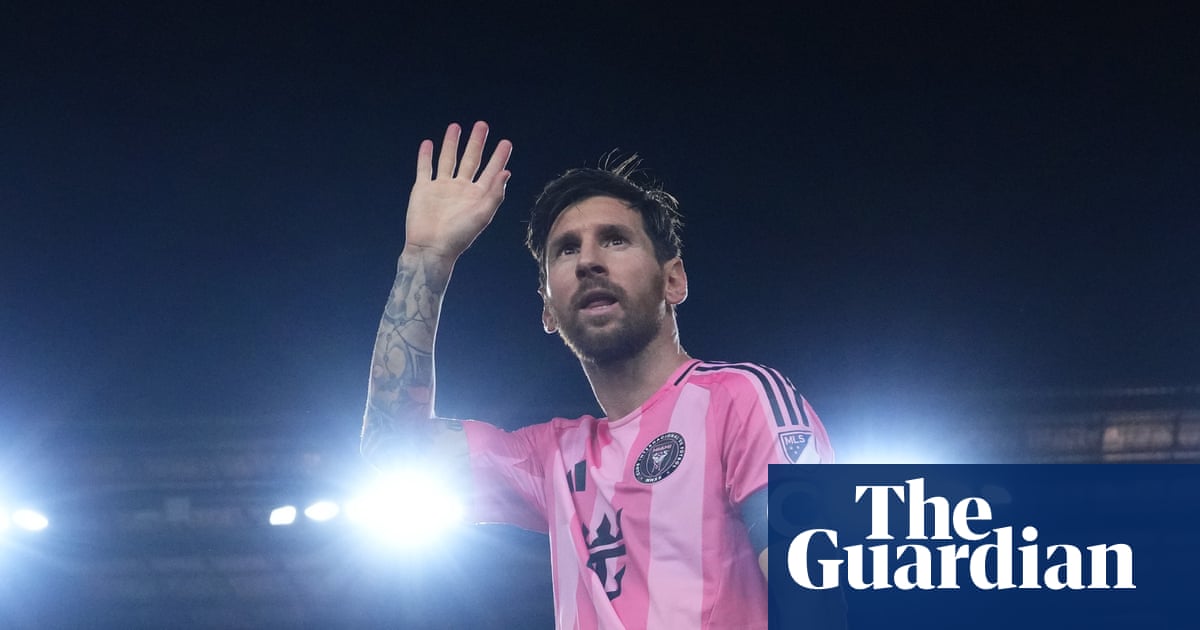Lionel Messi’s arrival in Major League Soccer (MLS) was expected to be a game-changer—not just for the league but for American soccer as a whole. The Argentine superstar, widely regarded as the greatest soccer player of all time, committed to spending the next three years playing in the United States, sparking hopes that his presence would propel MLS into the mainstream of American sports culture. Yet, despite an exceptional individual season that shattered records and dazzled fans, Messi’s impact on the league’s broader popularity and growth remains surprisingly muted.
Messi’s performance on the field has been nothing short of extraordinary. In his first MLS season, he delivered what many analysts consider the best individual campaign in the league’s history. He won the Golden Boot as the top scorer and tied for the lead in assists, all while missing roughly a quarter of the season due to injury and other factors. Messi set new records for non-penalty goals and total goal contributions, outperforming previous MLS legends like Carlos Vela, whose 2019 season was long held as the benchmark for excellence. Advanced metrics such as American Soccer Analysis’s “goals added” rating show Messi outpacing the next best player by a wide margin, underscoring his dominant influence on the pitch.
Despite these achievements, the buzz around Messi’s MLS tenure has been oddly subdued, even among some of the league’s most dedicated fans. In fact, as recently as a few months ago, debates about the league’s Most Valuable Player award included other contenders like Anders Dreyer of San Diego and Evander of Cincinnati, with some suggesting they might be more deserving than Messi. This underappreciation points to a deeper issue: Messi’s presence, while spectacular, has not translated into a broader surge in enthusiasm or mainstream interest in MLS.
One reason for the lukewarm reception among opposing fans is a sense of alienation. While initially thrilled to witness a global icon in person or to capitalize on the surge in ticket sales his name generates, some supporters have grown resentful of what they see as an imbalance in the league. Inter Miami, Messi’s team, reportedly spent more than double the average MLS wage bill to assemble a squad featuring former Barcelona stars alongside Messi, upsetting the league’s tradition of competitive parity. This financial disparity has led to frustration among fans of other teams and contributed to a perception that MLS is drifting away from its roots as a balanced, competitive league.
Moreover, the hoped-for boost to MLS’s popularity among the general American sports audience has yet to materialize. Early on, league executives forecasted that Messi’s arrival, combined with the 2026 World Cup hosted partly in the U.S., would double the league’s fanbase by 2026, with continued growth thereafter. However, attendance figures tell a different story: average regular-season attendance dropped by 5.5% year-over-year, and MLS continues to lose ground to European soccer leagues, which dominate the American soccer boom. While MLS did report a 29% increase in total weekly viewership for all matches, this uptick can largely be attributed to expanded streaming options and new international broadcast deals rather than a surge in traditional fan interest.
Interestingly, Google search trends within the United States reveal that Messi’s popularity still trails Cristiano Ronaldo, who plays in Saudi Arabia, and even Caitlin Clark, a rising star in women’s basketball who has captured the national sports conversation. This suggests that although Messi remains a global icon, his presence in MLS has not made him a household name among casual American sports fans in the same way other athletes have managed.
The disconnect between Messi’s on-field brilliance and the league’s broader cultural penetration is further underscored by how MLS and its fans engage with his persona. While millions worldwide watch Messi’s Inter Miami highlights and eagerly click on news stories featuring him, these moments have not coalesced into a sustained, passionate MLS fanbase. League commissioner Don Garber has acknowledged this gap, noting that despite some increases in viewership—claiming numbers up “almost 50% compared to last year”—MLS is still “not where we need to be.” Attempts to capitalize on Messi’s appeal through innovative media deals, such as including a cut of MLS Season Pass streaming revenue in his contract, have yet to yield the expected financial windfall. Recently, MLS made playoff games free for all Apple TV subscribers, indicating that the subscription model tied to Messi’s presence may not have performed as hoped.
Beyond the numbers,

